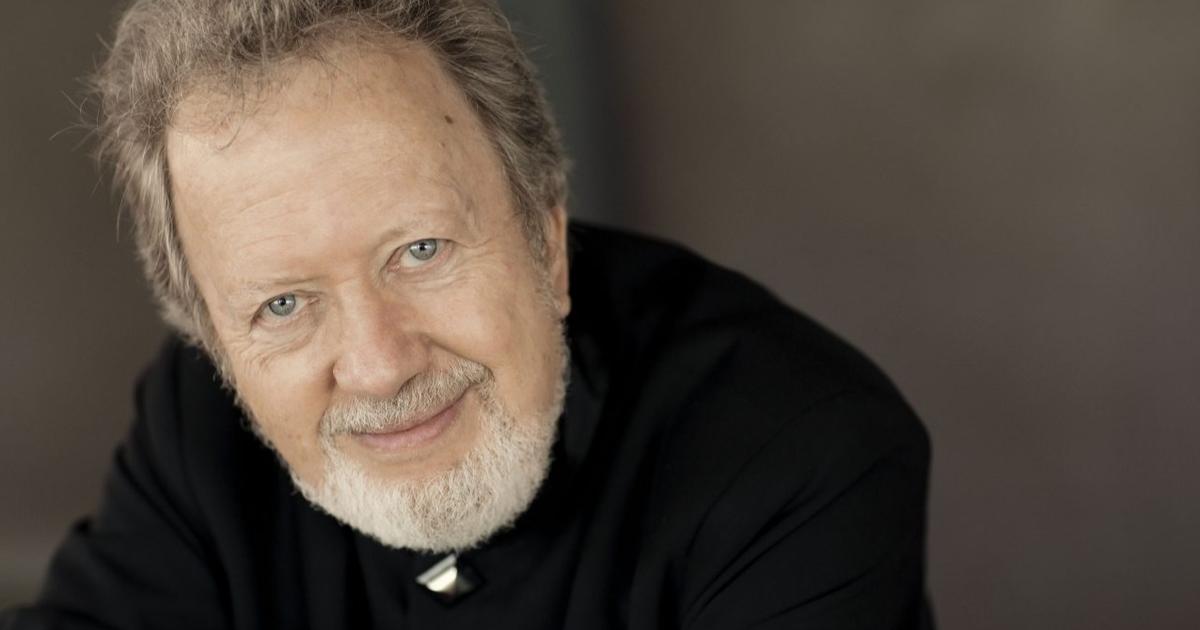The former musical director of the Orchestral ensemble in Paris died on March 31 at 83 years old. He leaves a discography marked by his taste for sacred music and his passion for the composer of the Fantastic symphony.
He put himself so little forward that there is much to fear that it is only after his death that France becomes aware of the imprint left by the American chief John Nelson in the musical life of our country. This discreet but unifying maestro, who thought in terms of mission than career, has just died at the age of 83. Born in 1941 in Costa Rica where his parents were missionaries, he studied at the Juilliard School in New York in the sixties with a Frenchman who was then professor of conductor: Jean Morel, who also saw James Levine and Leonard Slatkin in his class.
Musical director of American institutions that are little publicized as the Indianapolis Symphony Orchestra or the Saint-Louis Opera, he became a familiar figure in Parisian musical life when he was appointed in 1998 at the head of the Orchestral ensemble in Paris, which had not yet been renamed Paris Chamber Orchestra. With Georges Schneider for Managing Director, he takes his task very at heart until 2009. This orchestra founded in 1978 by Jean-Pierre Wallez had difficulty positioning himself in the Parisian orchestral landscape, stuck between large symphonic formations and baroque sets on period instruments.
Charisma, humanism and requirement
Read too
Kurt Masur and John Nelson say goodbye
Through his work and charisma, John Nelson paved the way for the progressive modernization of this orchestra, which has now become essential. He did it without retreating in front of a sometimes thankless task, knowing that one of the functions of the musical director is to support where it hurts. But he always did it with humanity, and by opening up perspectives of artistic ambition. By recruiting new musicians (it was he who appointed Deborah Nemtanu solo violin), but also by carrying out ambitious projects, such as the integral of Symphonies From Beethoven, that the EOP was then only the third French orchestra to record. With him, the EOP occurred in the pit of the Palais Garnier (Alcina From his dear Haendel), made creations of Jean-Louis Florentz or Régis Campo, and gave fervent interpretations of Bach to Notre-Dame, choral music being one of his big passions.
Because this pastor’s son, himself a Baptist who became Presbyterian and then Anglican, was a man of faith, which led him in the 1990s to create the Soli Deo Gloria Foundation, intended to command new works of sacred music to composers. This is how the Requiem by Christopher Rouse, whom Christoph Eschenbach agreed to direct to the Paris Orchestra, and composed in memory of Berlioz.
Berliozian cause lawyer
Berlioz! He will remain the great vocation of John Nelson’s life. However, his master in New York, Jean Morel, did not mention him in his class. It was by listening to the pioneering recordings of Colin Davis that he discovers the river opera The Trojansthat he has the crazy project to go up to Carnegie Hall in 1972, in full version. He therefore became the most fervent lawyer in the Berliozian cause. And there, his kindness and his humanity tolerate any negligence!
We will never forget this winter 2003 winter evening when, when we were coming to a chance on Île Saint-Louis, he told us that he had just challenged Roberto Alagna, planned to record Welcome Cellini A few days later: “He did not know his role, it is not acceptable!” »» The tenor was replaced by Gregory Kunde and the concert, at Radio France, on December 8, 2003, was marked by a extremely rare incident: in the middle of the disheveled scene of the Roman carnival, Nelson stopped net, the orchestra was silent and the room held his breath. There were thus long minutes, white like a cloth, flickering, until it is brought a chair. Once noted that it was not a heart attack but dizziness, he resumed the concert, seated and with a minimum of gestures: no question of canceling!
Producer Alain Lanceron had him recorded for Warner Classics most of his Berliozian repertoire, culminating in an unsurpassable version of Trojansrecorded in 2017 in Strasbourg, whose Philharmonic Orchestra became its election phalanx. The alliance of epic breath, loyalty to the partition and a dazzling distribution reached the ideal that it was fixed. Will follow Romeo and Juliet and the Requiem. Weakened three years ago by an stroke, he could not have gone to the end of his Berliozian projects, among which was still the Fantastic symphony, Lélio et The childhood of Christ.
